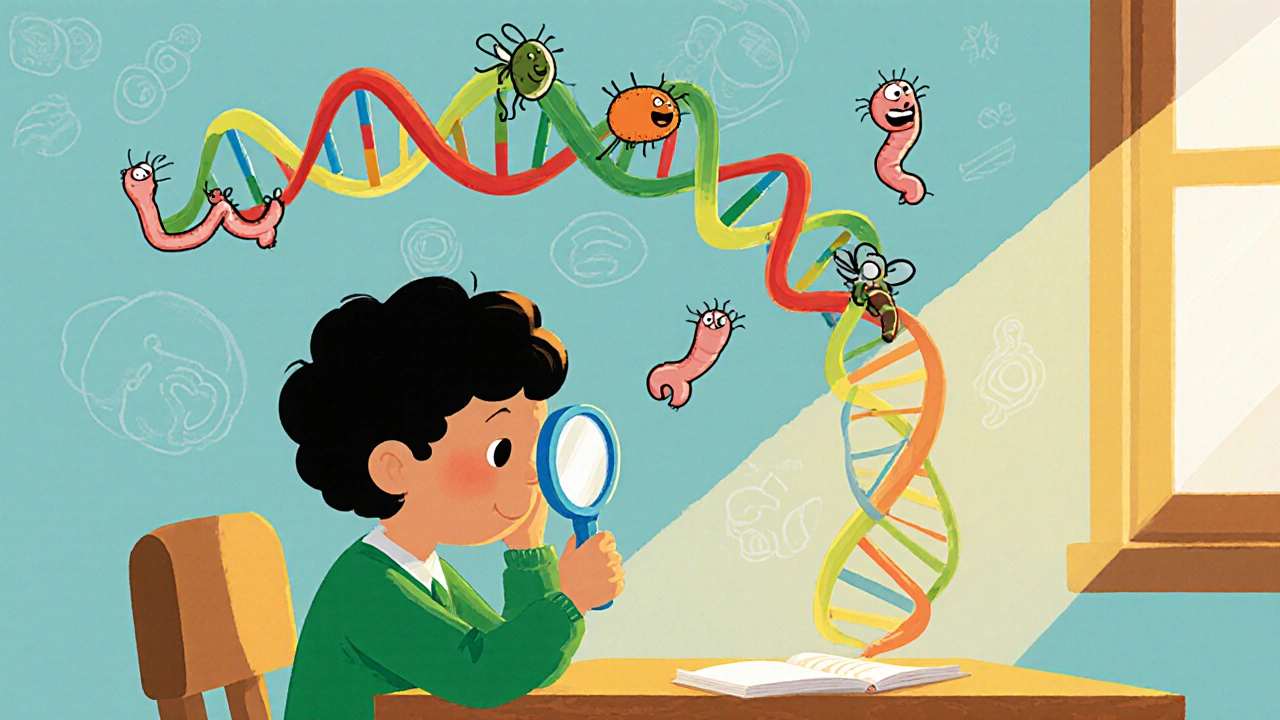Susceptibility: Understanding What Makes You Prone to Health Issues
When working with susceptibility, the tendency to develop a disease, react to a medication, or experience a health condition based on a mix of internal and external influences. Also known as predisposition, it plays a key role in deciding how your body handles everything from everyday stress to prescription drugs.
One of the biggest drivers of risk factors, specific characteristics or exposures that increase the chance of a health problem is lifestyle. Poor sleep, an imbalanced diet, or chronic stress can tip the scales toward fatigue, high blood pressure, or even weakened immunity. Another critical piece is drug side effects, unwanted reactions that happen when a medication interacts with your body’s chemistry. Those reactions can amplify your underlying genetic predisposition, inherited DNA patterns that make you more vulnerable to certain illnesses or drug responses. Together these three elements create a web where each strand can boost or blunt the others.
Key Factors Influencing Susceptibility
First, risk factors can be modifiable or fixed. Age, gender, and family history are fixed; you can’t change them, but you can plan around them. Modifiable factors—like exercise, smoking, or alcohol intake—are where you have the most control. For instance, the post on sitagliptin‑metformin shows how managing blood sugar can lower fatigue, a symptom linked to diabetes susceptibility.
Second, drug side effects often reveal hidden susceptibility. A patient taking an antibiotic such as metronidazole might experience severe nausea if they have a low threshold for gastrointestinal upset. Our guide comparing Flagyl ER and alternatives highlights how picking the right drug can reduce that risk.
Third, genetic predisposition informs everything from heart failure risk to how well you tolerate erectile dysfunction meds. The articles on Avanafil, Zenegra, and Tadora demonstrate that people with certain gene variants respond differently to dosages and onset times, making personalized choice essential.
Because those three pillars interact, a single health issue often has multiple susceptibility angles. Take heart failure and stroke risk: the heart failure‑stroke guide explains how the condition itself raises stroke chances, but age, hypertension, and medication choices also add layers of vulnerability. In the same vein, the anxiety and depression piece for Kaposi sarcoma patients shows how a disease’s immune impact can heighten mental‑health susceptibility.
Our collection also covers everyday concerns that many overlook. The gut‑health article on upset stomach gives practical steps to lower susceptibility to digestive upset through fiber, probiotics, and stress management. Meanwhile, the soy supplement roundup points out how certain nutrients can either boost or trigger allergic susceptibility, depending on individual immune response.
If you’re looking at chronic conditions like anemia or osteoporosis, the anemia‑osteoporosis guide explains how low iron levels can worsen bone density, creating a double‑susceptibility scenario. Similarly, the Parkinson’s therapy overview discusses how the standard carbidopa‑levodopa regimen may not suit everyone, especially those with genetic variants that affect dopamine metabolism.
All these pieces share a common thread: understanding your own susceptibility helps you make smarter health choices. Whether you’re evaluating male contraception options, choosing an ED medication, or buying a cheap generic drug online, the better you grasp the risk factors, side‑effect profiles, and genetic background, the more likely you are to avoid problems and achieve the outcomes you want.
Below you’ll find a hand‑picked set of articles that dive deeper into each of these angles. From fatigue‑fighting combos to detailed drug‑comparison tables, the posts give you concrete tips, dosage guidance, and real‑world examples you can use right away. Ready to see how susceptibility shapes the topics you care about? Let’s explore the collection and put the theory into practice.
Genetics and Susceptibility to Parasitic Infections
- Beata Staszkow
- |
- |
- 12
Explore how DNA variations influence who gets infected by parasites, the key genetic markers involved, and what this means for personal health and prevention.
View more
